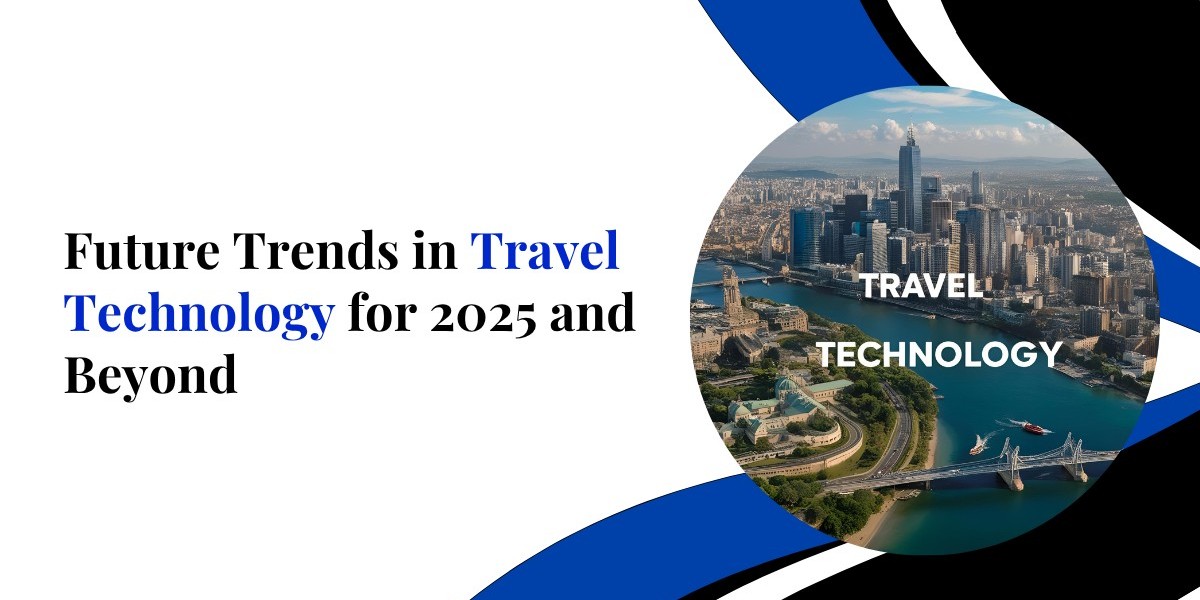The travel industry is evolving rapidly, driven by advancements in technology. With increasing competition and shifting consumer demands, the role of travel technology is more crucial than ever. As we look to 2025 and beyond, technology will continue to reshape how people book trips, interact with services, and experience travel. In this article, we will explore the future trends in travel technology that are set to dominate the industry in the coming years.
The Role of Travel Technology in the Future of Travel
1. What is Travel Technology?
Travel technology refers to the suite of technological tools, systems, and applications used by businesses, travel agencies, service providers, and travelers to improve the efficiency, accessibility, and experience of travel. It includes everything from online booking platforms and mobile apps to advanced analytics and virtual reality tools.
With the rise of travel technology solutions, the industry has seen vast improvements in customer experience, cost optimization, operational efficiency, and safety. These solutions continue to evolve and will play an even bigger role in shaping the future of the travel industry.
Key Trends in Travel Technology for 2025 and Beyond
1. Artificial Intelligence (AI) and Machine Learning in Travel
- Enhanced Personalization: One of the biggest trends in travel technology solutions is the use of artificial intelligence (AI) and machine learning. These technologies are transforming how companies deliver personalized services to travelers. AI can analyze vast amounts of data, such as past travel preferences, behaviors, and real-time location, to offer tailored recommendations.
For example, an AI-powered system can recommend vacation destinations based on a traveler’s previous trips, weather preferences, or interests. AI chatbots also assist customers with booking, inquiries, and feedback, ensuring a seamless experience from start to finish.
- Predictive Analytics: Machine learning algorithms can analyze historical data to predict travel trends, demand surges, and even potential disruptions, such as weather-related delays or geopolitical issues. Predictive analytics will allow travel companies to optimize pricing, tailor offers, and provide more efficient customer service.
Stat: According to a study by Accenture, 63% of travelers expect AI to provide more personalized services in the near future.
2. Virtual and Augmented Reality (VR/AR)
- Immersive Travel Experiences: Virtual reality (VR) and augmented reality (AR) technologies are increasingly being used to enhance the travel experience. By 2025, these technologies are expected to become even more integrated into travel bookings, helping customers visualize destinations, hotels, and excursions before making decisions.
For instance, VR could enable potential travelers to experience a hotel room, tour a city, or even virtually visit a museum, all before they book their trip. This allows customers to make better-informed decisions and reduces uncertainty in the booking process.
- AR for Navigation and Guidance: AR will also enhance on-site navigation, helping tourists find their way around unfamiliar destinations. AR apps can overlay directions, nearby attractions, or restaurant recommendations on the real world via smartphones or AR glasses. This trend is especially valuable for cities with complex transportation systems or for guiding tourists through large resorts and theme parks.
3. Voice Assistants and Smart Devices
- Seamless Interactions with Voice Assistants: Voice assistants like Alexa, Google Assistant, and Siri are gaining popularity in travel tech. By 2025, voice-controlled technologies will be more deeply integrated into travel services. Travelers will be able to book flights, check in to hotels, and receive real-time updates simply by speaking to their devices.
For example, travelers could use voice commands to book transportation, change flight details, or ask for real-time travel updates while en route to their destination.
- Smart Devices for Enhanced Comfort: In addition to voice assistants, smart devices will play a key role in improving comfort and convenience for travelers. Smart thermostats, automated room lighting, and IoT-enabled appliances will allow guests to personalize their hotel room settings, making their stay more comfortable. Additionally, wearables will track health metrics such as sleep, activity levels, and stress, offering insights into how to improve the travel experience.
4. Blockchain Technology in Travel
- Enhanced Security and Transparency: Blockchain technology, known for its ability to securely and transparently record transactions, is poised to revolutionize travel. By 2025, travel technology solutions will leverage blockchain to provide more secure, efficient, and transparent booking systems. This will eliminate the need for intermediaries, reducing costs and increasing trust between consumers and service providers.
For example, blockchain could be used for secure transactions in flight booking, hotel reservations, and even loyalty programs. With blockchain, travelers will be able to store their identification, payment details, and booking confirmations securely in one digital wallet.
- Loyalty Programs and Rewards: Blockchain is also expected to change the way loyalty programs operate. With blockchain, travelers could have the ability to use their rewards points across different service providers or transfer points between airlines, hotels, and even other brands, offering greater flexibility.
Other Emerging Trends in Travel Technology
1. Autonomous Transportation
- Self-Driving Vehicles for Travel: In the near future, autonomous vehicles will become a common mode of transportation in travel. Autonomous cars, buses, and even drones will provide more flexible and efficient ways to get from one place to another. By 2025, companies in the travel sector will likely integrate these self-driving vehicles into their operations, allowing for a smoother and more efficient travel experience.
For instance, self-driving shuttles at airports could automatically take passengers from terminals to parking lots or rental car locations. This trend also includes drone-based deliveries, where packages or even food could be delivered directly to tourists.
2. Sustainable Travel Technology
- Eco-Friendly Innovations: As sustainability becomes a priority, travel technology services will incorporate eco-friendly innovations. For example, airlines are increasingly adopting fuel-efficient aircraft, while travel companies are focusing on offering sustainable vacation options. By 2025, we can expect the rise of more energy-efficient and green technology solutions to cater to the growing demand for sustainable travel.
Smart energy management systems in hotels and resorts, electric vehicle (EV) charging stations at popular tourist destinations, and eco-friendly transportation solutions will be key components of the future travel landscape.
- Stat: According to a report by Booking.com, 70% of global travelers are more likely to book a trip if they know the company is committed to reducing its environmental impact.
7. Contactless Travel and Safety
- Contactless Technology for Safer Travel: The COVID-19 pandemic has accelerated the adoption of contactless technology, and this trend is likely to continue in the coming years. By 2025, travel technology solutions will include more touchless check-ins, biometric screening, and mobile boarding passes. This will reduce physical interactions at airports, hotels, and other travel hubs, improving safety and convenience.
Facial recognition technology will become more widespread at airports, allowing passengers to check in, pass through security, and board flights without the need for physical tickets or identification.
- Health Monitoring Systems: As health and safety concerns remain a priority, wearable technology and mobile apps will play a key role in monitoring travelers' health and safety. Travelers could use these technologies to track symptoms, monitor wellness metrics, or receive alerts if they’ve been exposed to health risks such as COVID-19.
The Role of Travel Technology Solutions Providers
As the future of travel technology unfolds, the role of travel technology solutions providers will become even more significant. These companies will be responsible for developing and integrating the innovative technologies mentioned above, creating custom solutions for travel companies, and ensuring that these technologies align with evolving customer needs.
1. Collaboration and Customization
Travel companies will increasingly partner with travel technology development companies to build customized solutions that cater to their unique needs. These solutions might include personalized apps, booking systems, customer support systems, and even advanced predictive tools for demand forecasting.
2. Adaptation to Changing Customer Expectations
Travel technology companies will also need to adapt quickly to changing customer expectations. Today’s travelers are looking for more personalized, seamless, and engaging experiences. By offering tech-driven solutions that enhance every touchpoint of the customer journey—whether through AI, VR, or blockchain—travel technology companies can help businesses stay ahead of the competition.
Conclusion
The future of travel is digital, and travel technology solutions will continue to evolve rapidly as we approach 2025 and beyond. From AI and VR to autonomous transportation and sustainable innovations, the travel industry will undergo a transformation in how people plan, book, and experience travel.
The role of travel technology in improving customer service, enhancing safety, and enabling more sustainable options will be critical in shaping the industry’s future. Travel technology solutions providers will be essential in guiding companies through this transformation, helping them adapt to new trends and meet the growing demands of tech-savvy travelers.
As the travel landscape continues to evolve, businesses that embrace these emerging technologies will be well-positioned to succeed in a competitive and ever-changing market.



